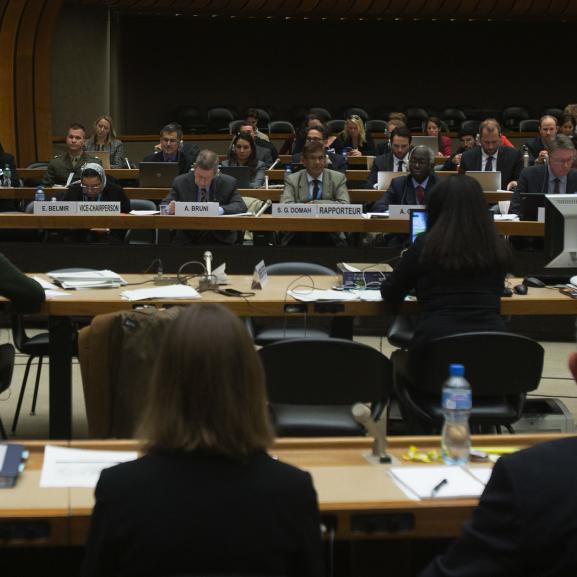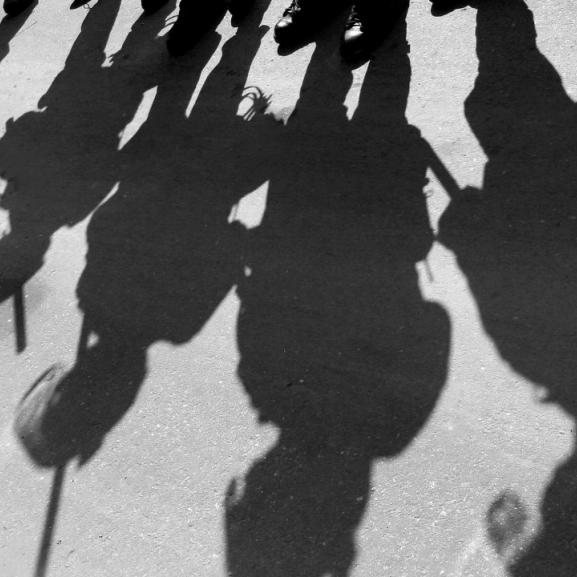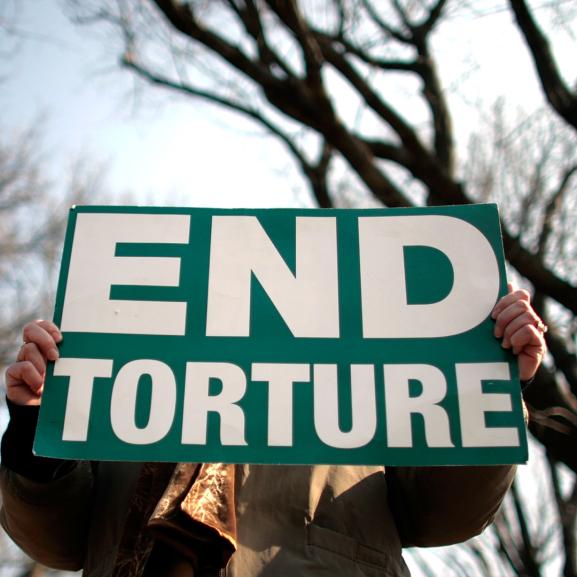Sudan: The "World's Greatest Humanitarian Crisis"
As the crisis in Darfur shows little sign of abating, despite the presence of 7,000 African peace keepers on the ground, the accounts of more than 250 Sudanese nationals referred to the Medical Foundation for treatment in the past three years provide further insight into the scale of human rights abuses that have taken place.
The vast majority of them male, most had escaped imprisonment and torture in one of Khartoum's many jails or "ghost houses" - private houses used as secret detention and torture centres - and fled the country hidden aboard ship from Port Sudan.
The same themes ran through the accounts of those who were accepted by the MF either for physical consultation and care and, in many cases, psychological treatment.
Either they were targeted because they belonged to historically marginalised tribes, or they came from farming communities which had tried to resist the ethnic cleansing of the Government-backed Janjaweed Arab militias.
The latter included politically active students who joined the Justice and Equality Movement (JEM) in a bid to fight back. Once captured, they were then forcibly conscripted into the Janjaweed's military wing, the Popular Defence Forces (PDF), and tortured when they refused to take part in the atrocities against their own people.
Clients also included farmers who were forced from their land and incarcerated in tiny cells; others had watched helplessly as the Janjaweed attacked under cover of night, burning families alive in their homes as they stole land and cattle.
Dragged off into imprisonment, sometimes literally as they were tied to the back of trucks for part of the journey, they faced prolonged periods of brutal treatment.
Tortures included the rape and sexual assault of young men, incessant beatings, being forced to stand for long period in the scorching sun, and the "aeroplane" in which victims would be tied up, suspended from the ceiling and then spun around until unconscious.
There were reports from some that children left behind in the aftermath of village raids had been kidnapped and forced into slavery with wealthy Sudanese families, including government ministers.
Since the start of the conflict in the west of Sudan in 2003, some 200,000 people are said to have been killed and a further 2 million displaced, earning it the title "the world's greatest humanitarian crisis," from former UN secretary general Kofi Annan.
The slaughter started less than a decade after the world said "never again" when the UN stood by while 800,000 Tutsis were massacred in Rwanda.
In the UK, it is only a matter of months since Prime Minister Tony Blair said the international community could not turn its back on Darfur. Yet in 2005 the Home Office refused 900 asylum applications from people fleeing Sudan, often with the claim that "ordinary non-Arab ethnic Darfuris" and "low-mid level affiliates" of parties opposed to the Khartoum government "are not at risk of persecution outside the Darfur states".
Client X, however, found to his cost that the Sudanese state has a long memory about those it deems to be its enemies. He initially fled to the UK in 2001 after refusing to fight for Government forces in the civil war in the south of the country.
Failing in his bid to gain asylum, he was returned to Khartoum but arrested at the airport and taken away to a "ghost house" for interrogation.
There he was thrown into a tiny room with eight other people, who were each beaten and interrogated repeatedly. The treatment he suffered included the "aeroplane", in which the soles of his feet were beaten as he was swung around. After two months, desperate relatives bribed guards to release him.





